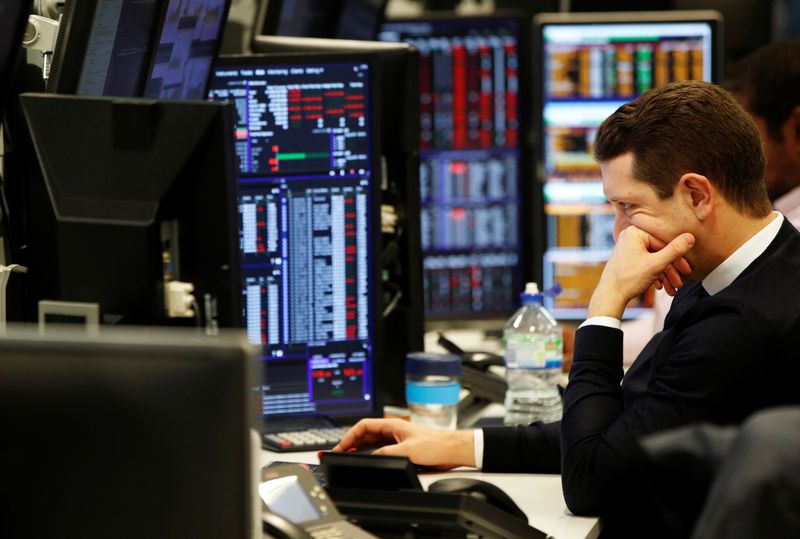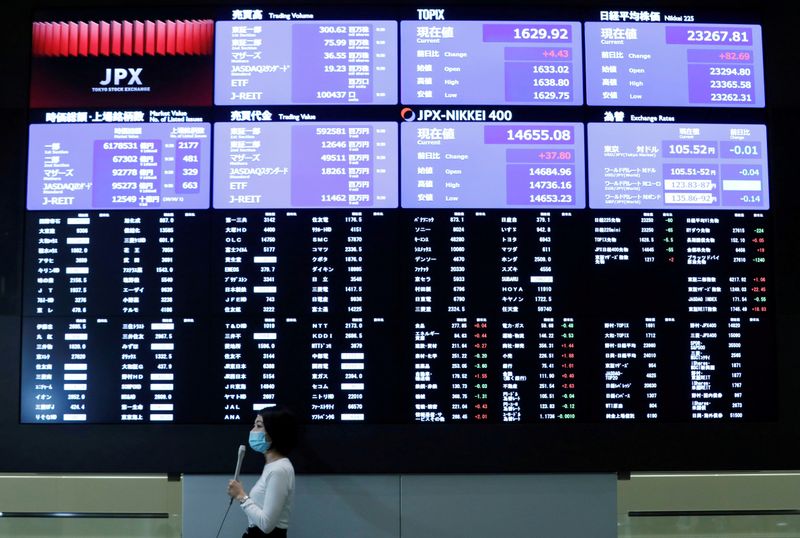By Julien Ponthus
LONDON (Reuters) - Hopes that Pfizer (N:PFE) could apply for a U.S. emergency use of its COVID-19 vaccine in November helped soothe financial markets shaken by fears that that the resurgent coronavirus pandemic may undermine a fragile economic recovery.
Wall Street futures jumped back into positive territory and European stocks accelerated gains when the U.S. pharmaceutical group said the regulatory filing for the vaccine could come as soon as safety data is available in the third week of November.
In midday trading the pan-European STOXX 600 (STOXX) rose 0.8% after losing over 2% on Thursday as new social restrictions in Europe, including a curfew in major French cities and tighter restrictions in London, spooked investors.
As the global race to develop a coronavirus vaccine heats up, financial markets have been tracking every twist and turn, hoping a successful deployment would help sustain economic recovery.
S&P 500 futures (Esc1) were up 0.3% after U.S. stocks ended Thursday's session down following a rise in weekly jobless claims.
U.S. President Donald Trump's offer on Thursday to increase the size of a fiscal stimulus package to win the support of Republicans and Democrats helped limit Wall Street's losses, though many investors still believe a deal is unlikely before the Nov. 3 election.
In a sign of improved mood on the trading floors, the euro (EUR=EBS) also regained some ground, rising about 0.2% to $1.1736 as investors shifted from perceived safe havens such as the dollar (=USD), which declined 0.2% against a basket of currencies.
Sterling stumbled after UK Prime Minister Boris Johnson told businesses to get ready for a no-deal Brexit in case negotiations with the European Union fail to produce a free trade agreement.
The pound, however, recovered some ground and was trading unchanged against the dollar at $1.2904 as the head of the European Commission said the bloc's team would go to London next week to continue talks with the UK.
Exposing the uncertainties over the economic outlook, oil prices fell, dragged down by concerns that the spike in COVID-19 cases in Europe and the United States is curtailing demand in two of the world's biggest fuel consuming regions.
"It’s a tug-of-war between risks that are well flagged, the pandemic, the U.S. election, Brexit, and at the same time hope that these same risks can be resolved in matter of weeks or months", said Emmanuel Cau, head of European equity strategy at Barclays (LON:BARC).
"In the meantime, it's hard for investors to take positions on the short term given all the uncertainties," he said. "Looking forward to 2021, there’s a good probability these risks will be behind us."
Brent crude futures for December (LCOc1) fell 1% to $42.72 a barrel and U.S. West Texas Intermediate (WTI) crude futures for November delivery (CLc1) slid 0.9% to $40.56.
Also exposing market angst, Germany's 10-year bond yield was set for its biggest weekly drop since June and stabilised near seven-month lows.

Spot gold
